STEM Sign Language Lexicon Workshop
A showcase of STEM sign language lexicon from around the world. This is the first of several events celebrating the 2023 Global Year of STEM Sign Language Lexicons.
STEM in Agriculture
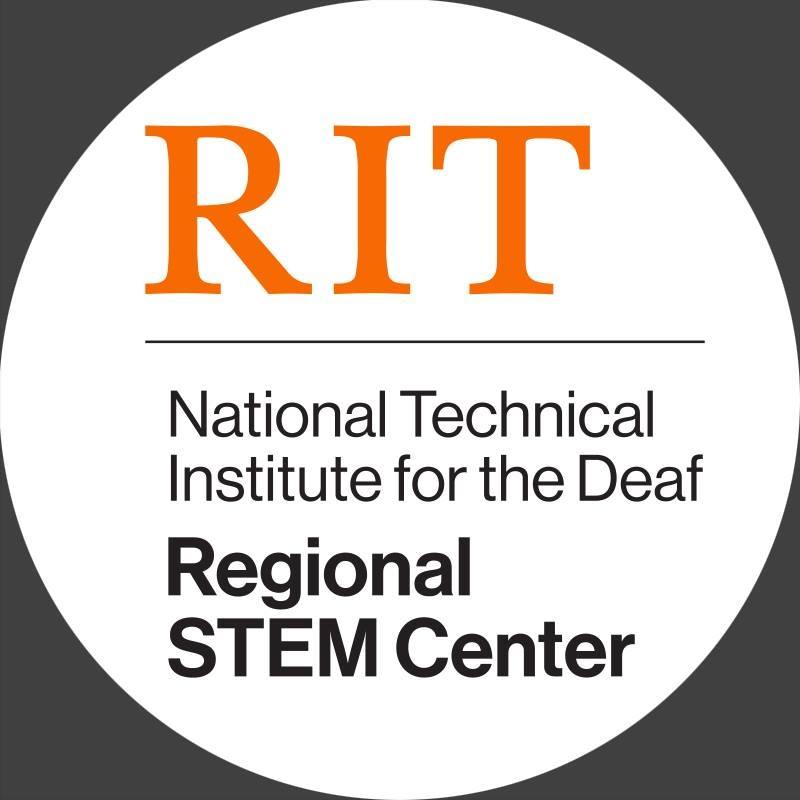
A completely free summer camp experience at the University of Alabama in Huntsville, Alabama for Deaf and Hard-of-Hearing students. Students are eligible if they will be entering the 9th-12th grade in Fall 2023. If flying to the camp, students MUST BE AT LEAST 15 YEARS OLD at the time of flying to camp.
STEM Academy (Formerly Summer Transition Program)

A completely free summer camp experience at the University of Alabama in Huntsville, Alabama for Deaf and Hard-of-Hearing students. Students are eligible if they will be entering the 9th-12th grade in Fall 2023. If flying to the camp, students MUST BE AT LEAST 15 YEARS OLD at the time of flying to camp. *STEM Academy is limited […]
MarineLab
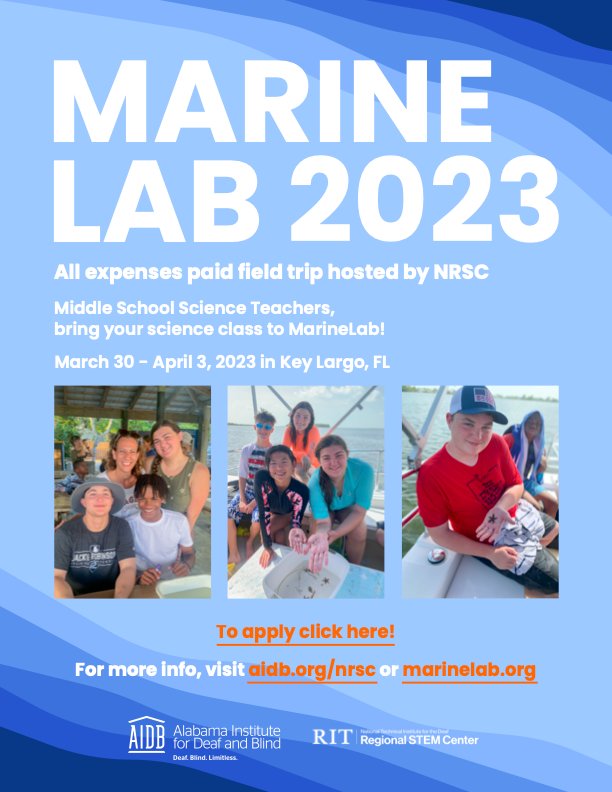
MarineLab is a FREE summer program (all expenses paid) for middle school Deaf and Hard-of-Hearing students.
Dr. Deaf Ph.D Workshop
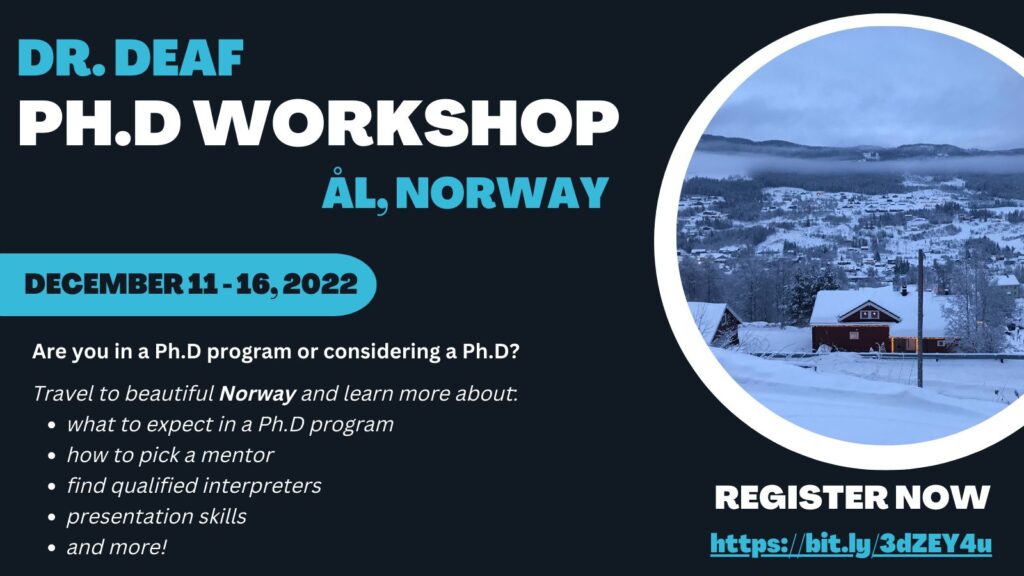
Are you in a Ph.D program or considering a Ph.D? Travel to beautiful Norway and learn more about: What to expect in a Ph.D. program How to pick a mentor Find qualified interpreters Presentation skills and more!
When Work is not Work: Interpreting Technical ASL
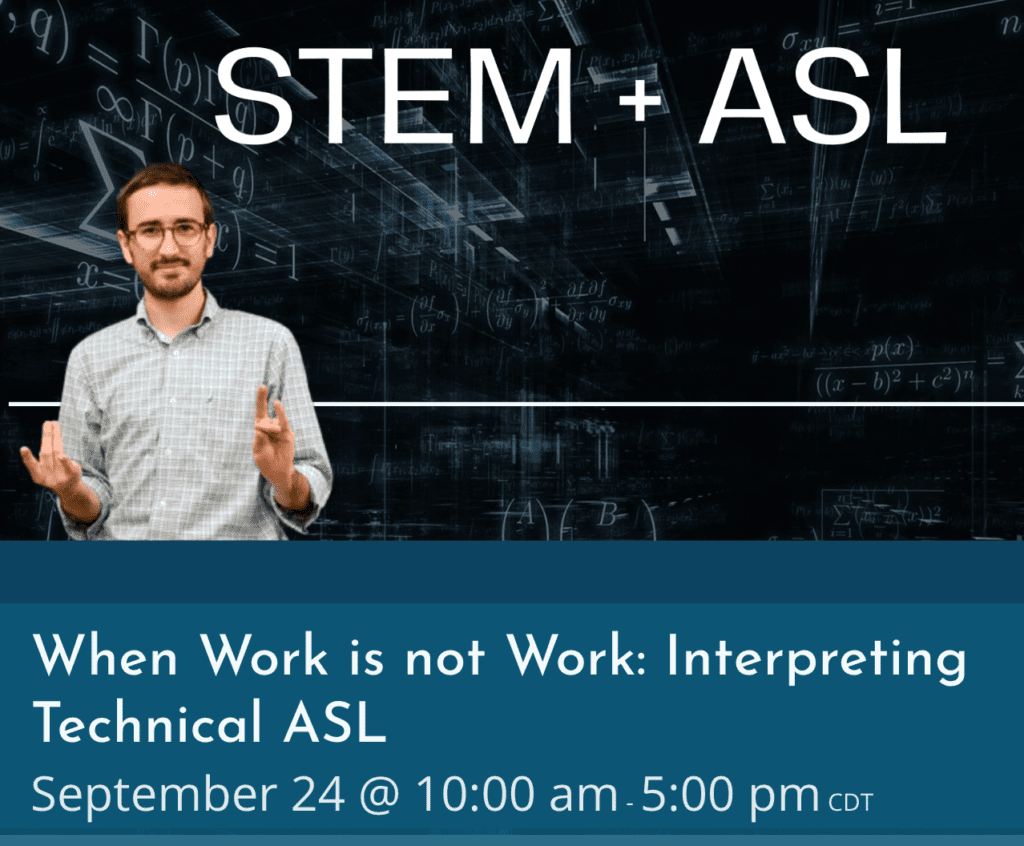
Light amplification by stimulated emission of radiation. If this expansion of “laser” seems impossible to interpret elegantly into American Sign Language (ASL), then this workshop is for you! Join us in undertaking a holistic exploration of interpreting in technical contexts, beginning with a group discussion of the challenges inherent in such work so that participants […]
Alex Lu
I’m a Senior Researcher at Microsoft Research New England. I lead a research program around the application of artificial intelligence and machine learning to big biological datasets.
Modern biological experiments generate an unprecedented amount of data. How do we discover new biology when we have millions of microscopy images or protein sequences, and it becomes impossible to look at data at a one-by-one basis anymore? My research develops machine learning methods for discovering hypotheses in biology.
I have broad research interests, but central themes include:
- Reducing effort and bias in applying machine learning: The best-performing machine learning methods often require a large volume of labeled training data. Not only is this time-consuming, but it biases models to be more sensitive to biology we have prior knowledge of – we might not be able to discover unknown biology, since we can’t label it. To address these barriers, I focus on self-supervised machine learning methods.
- Learning relevant signal without direct specification: In biology, one scientist’s signal is another scientist’s noise: different biologists simply have different questions and are interested in learning different things from even the same data. I research how we can train machine learning models to extract relevant biological signal from data (even when we don’t know how to directly specify this), and robust to non-biological noise.
- Interpretation and visualization: After we’ve trained a model, how do we extract insights? I’m interested in how we can use interpretation and visualization techniques to identify new biological hypotheses.
Tom Rice
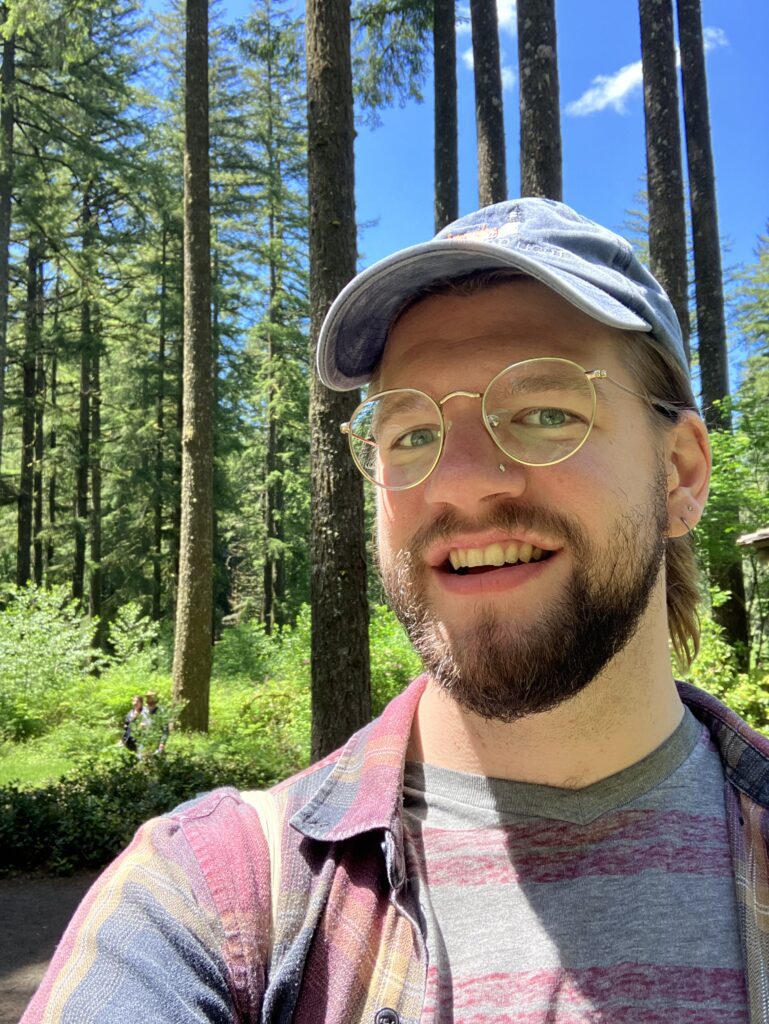
Dr. Tom Rice is an astronomer and educator who currently works as an Education and Mentoring Specialist for the American Astronomical Society, the largest professional society of astronomers and astrophysicists in North America. Dr. Rice previously taught and researched at Columbia University as a Science Fellow. A first-generation college student at Harvard University (2008-2012), he received his Ph.D. in astronomy in 2019 from the University of Michigan. He grew up in a Deaf, ASL speaking family in Oregon City, Oregon.
Hands & Flippers for Marine Conservation Virtual Tour
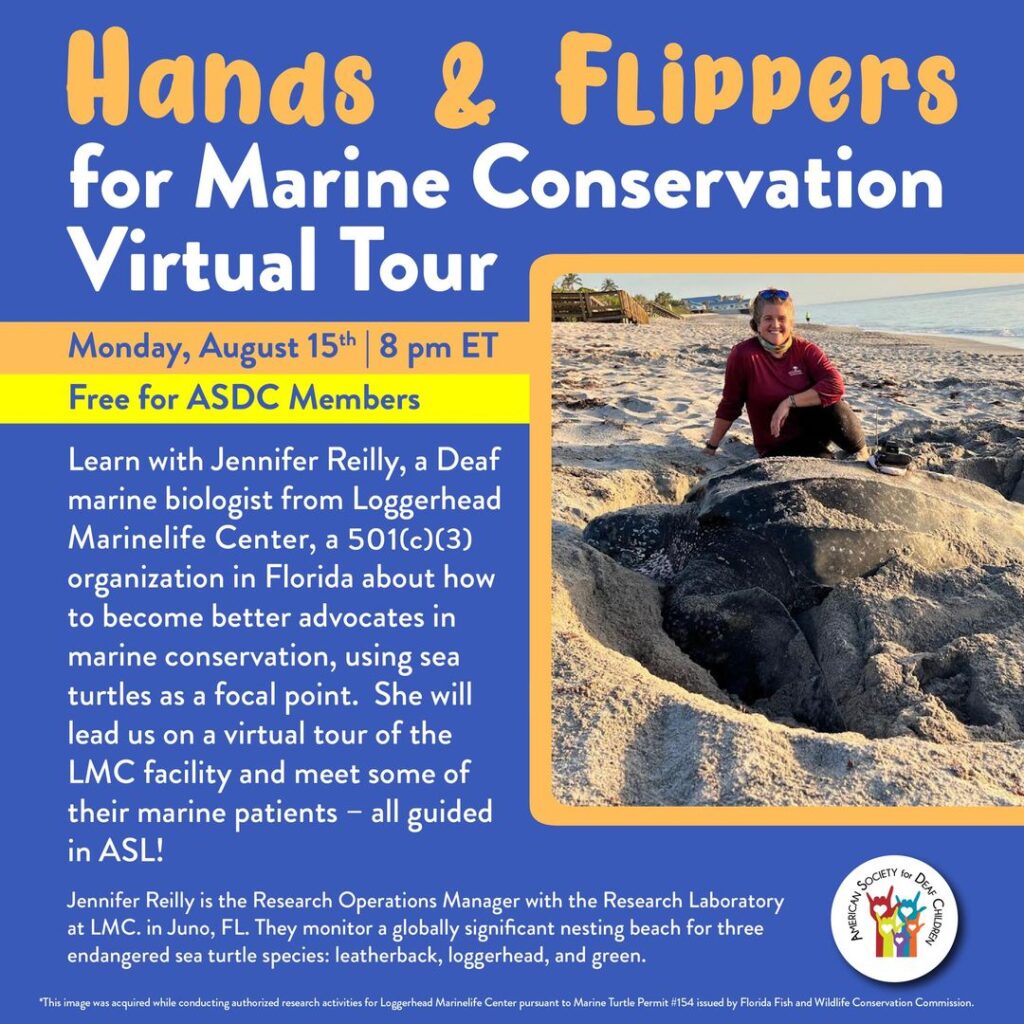
Learn with Jennifer Reilly, a Deaf marine biologist from Loggerhead Marinelife Center, a 501(c)(3) organization in Florida about how to become better advocates in marine conservation, using sea turtles as a focal point. She will lead us on a virtual tour of the LMC facility and meet some of their marine patients – all guided […]
Rain Bosworth
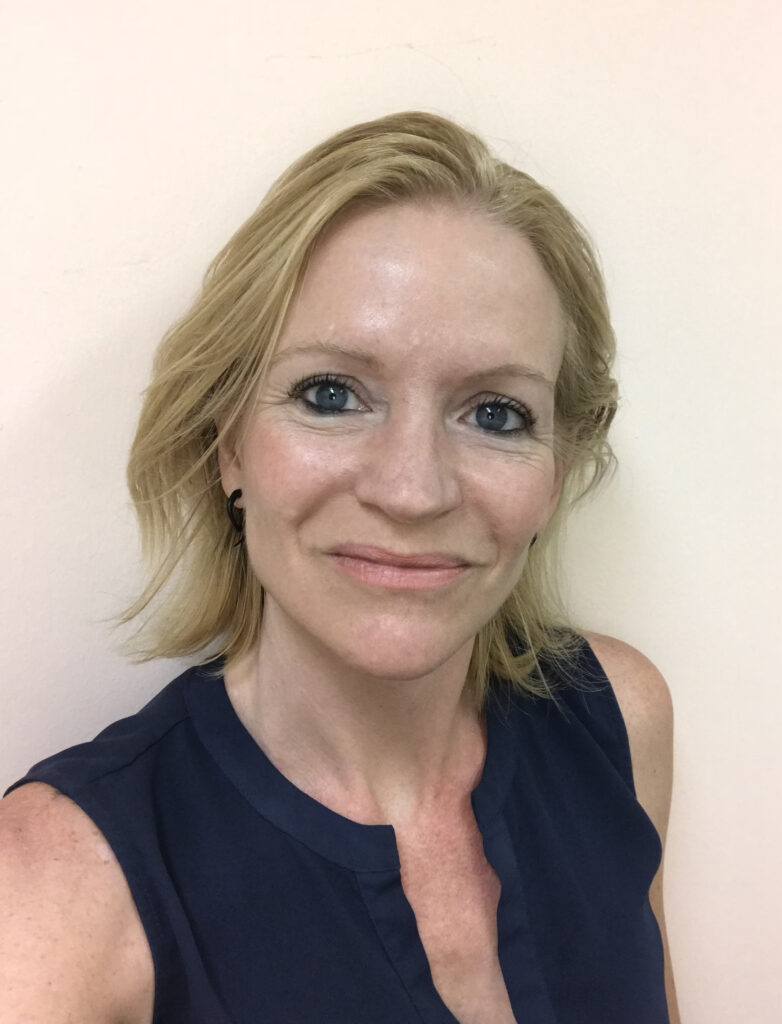
Dr. Rain Bosworth is an assistant professor in the Department of Liberal Studies at RIT/NTID. She is a deaf experimental psychologist, studying development of perception and language in infants and children at the newly-founded Perception, Language and Attention in Youth (PLAY) Lab. For her doctoral degree at the University of California, San Diego, she studied visual motion processing and attention in deaf adults, to better understand how deafness and sign language experience impact perceptual abilities. She is currently investigating visual and tactile behaviors in infants, children and adults to address questions about how we learn and process sign language. She has also studied how easily visual abilities are recovered in children who were treated for congenital eye disorders. Together, these lines of research reveal how early sensory input shapes perception, cognition, and language processing. Dr. Bosworth teaches Intro to Psychology, Cognitive Psychology, Developmental Psychology, Biopsychology, and Research Methods.
